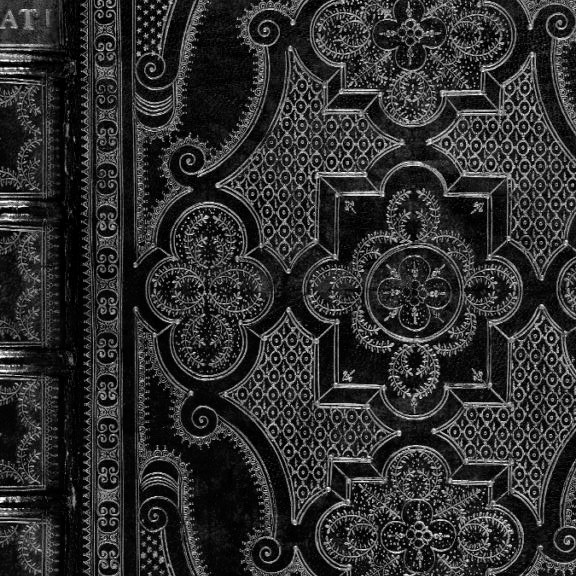See the list of topic categories here.
The reader will not find aphorisms in these pages. My brief sentences are the dots of color in a pointillist painting.
To express an idea is easy enough, but it is almost impossible to communicate the context that makes it truly intelligible. Whoever does not share our experiences deceives himself when he believes that he understands us.
Lucidity, discernment, elegance, subtlety, are qualities that lend gravity, substance, and meaning to a life.
When we feel, before an object or a fact, that our spirit crystallizes, when we sense that our efforts are ordered, when a subtle and lucid bliss suffuses us: the essence and meaning has entered our spirit, like the fruit which holds the substance of many noonday suns.
The intellectual harmony of a work may demand a logical contradiction between some of its parts.
A metaphor is not an illustration, nor an illumination, but an insight; the metaphor discovers in another place, in another order, in a different form, the same reality.
To comprehend a doctrine that eludes us, we must bring it closer to the author, integrate it into his life. In this way, we thaw the frozen and rigid thesis, and stand before a trembling and pulsing presence, before a living being.
If we do not analyze, we will not understand. But let us not presume that we have understood just because we have analyzed.
“Understanding” usually consists of distorting what we think we’ve understood, by reducing it to simpler terms which align with our current prejudices.
To engage in dialogue with those who do not share our postulates is nothing but a silly way to kill time.
He who does not know how to express himself is not only unheard by the world, but also closed off from himself. Words clear the spirit of its confusion and fog.
To suddenly understand what was closed to us with seven seals is a delicious sensation. But I am always troubled by the evidence of that new truth, now obvious, palpable, luminous, when I think of everything I do not understand today: that all of those things I do not comprehend contain truth equally obvious and clear, equally palpable, equally bright.
Intelligent discussion should be limited to clarifying differences.
To understand someone else’s idea it is necessary to think of it as one’s own.
Life demands that we reach conclusions, but not that we trust in them.
The universe is a useless dictionary for those who do not provide their own grammar.
Man believes he is lost among facts, when he is only tangled in the web of his own definitions.
Hell is a place that can only be identified from paradise.
Only in what he manages to express nobly does man grasp profound truths.
The danger is not so much in taking an idea to its consequences but in reasoning with an insufficient number of axioms.
To change your mind repeatedly is not the same as evolving. To evolve is to more deeply develop the same thought.
Familiarity, with persons or things, is the only thing that does not become tiring.
To act requires an operational notion of the object, but to understand requires a poetic notion.
With someone for whom certain terms must be defined, it is necessary to speak of a different topic.
Systematic comparison is only capable of producing trivialities, while poetic imagination can reveal extravagant analogies.
The metaphor illuminates, it does not reveal. Pretending to test with comparisons is dishonest.
To know what an individual would think if their diverse interests did not influence their opinions- I have always been passionately interested in this, but have never been able to manage it.
We hardly understand that we do not understand.
Understanding is finding confirmation of something previously sensed.
Any firm conclusion seems trivial to the one who ignores the paths by which it was reached.
When we come to understand what those who seemed to understand actually understand, we are dumbfounded.
The curve of man’s knowledge of himself ascends until the 17th century, declines gradually afterwards, and in this age finally plummets.
The cultivated man is less concerned with what he knows than with how he knows it.
Nothing is more difficult than comprehending the incomprehension of others.
Confusion is the typical result of dialogue. Except when an author makes it up.
We can eventually understand the man who knows what it is he is saying, even if it is complicated. But it is impossible to understand the man who merely imagines he knows what he is saying.
Someone who lacks the vocabulary to analyze his notions christens them intuitions.
Reducing the thought of another to their supposed motives prevents us from understanding.
Explanation implies, understanding unfolds. The explanation impoverishes by identifying terms; comprehension enriches by diversifying them.
Let us investigate where and when a new mentality is born, but let us resign ourselves to not knowing why.
We search in vain for the explanation of certain things because we ought to search for the explanation of their opposites.
Words do not communicate, they remind.
Ambiguity is not necessary in order to sow confusion. Clarity will suffice.
Note: Dávila was a Colombian political philosopher and in the Latin church. His aphorisms are presented here for the purposes of enjoyment, study, and historical record, but do not necessarily reflect the opinions of this writer. For more information on Dávila, see this introductory post. For information on how to live your life, go to church and read the Church Fathers/Saints.
Featured image: The Bodleian Library, University of Oxford. source



